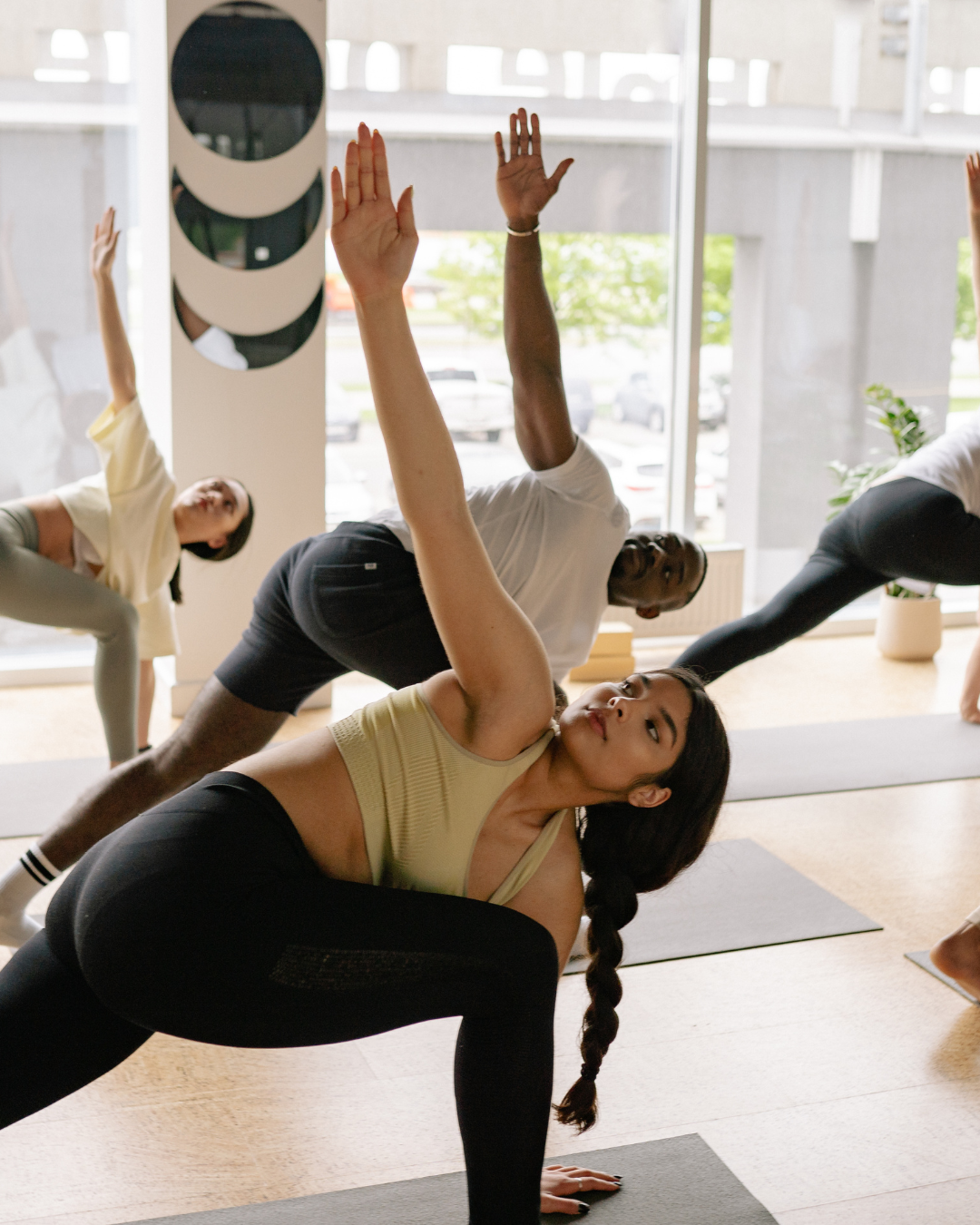Yoga and Pilates for Mental Health
This week the focus is on Mental Health Awareness!
Because we know that mental health plays a huge role in how you feel physically.
With 40-45% of individuals with chronic pain also experiencing anxiety & depression (NIH). This has a huge effect on daily life and can significantly impact our ability to work, participate in social activities and maintain relationships. Chronic pain and depression can also lead to sleep disturbances which can further exacerbate mental health issues and pain!
But have you considered the benefits that exercise can play on your mental health as well as your physical health? Particularly Yoga and Pilates!

There are several studies that have found Yoga and Pilates to significantly reduce depressive symptoms, anxiety and feelings of fatigue. Resulting in improved energy levels and improved quality of sleep. Below are some of the reasons why!
Increasing your sense of belonging
Group classes help to increase social interactions which can give us an Increased Sense of Belonging. Social isolation and low levels of social support are strongly associated with depression. So by attending a group class you are surrounding yourself with like minded people which can help to reduce stress and improve mood.
There is no pressure to talk but just being around others and completing a task can have a huge boost on your mental health, particularly if you don’t see anyone else during the day!
Reducing stress through Nervous system regulation
Nervous system regulation is essential for being able to calm your bodies natural stress responses, so dialling down your ‘fight or flight’ response and turning up your ‘rest and digest’ response.
Yoga and Pilates specifically are an excellent way to increase our bodies tolerance to stress. For example learning to hold a deep stretch or exercise such as the plank, which may be uncomfortable, and learning to use your breathing to relax into those movements helps to gradually decrease our emotional reactivity to things that challenge us so that we can better tolerate safe discomfort.
This also enables us to self regulate our nervous systems response to stress AND pain! A resilient mind helps to create a resilient body!
Increased Amygdala volume
One study even found that Yoga and meditation practitioners presented with a smaller right amygdala volume over time - the part of your brain that’s responsible for processing emotions, particularly fear and aggression! Proposing that Yoga can help to reduce our reactivity to stress!
Improved Quality of Sleep
By regulating our nervous system, we can also reduce stress and improve the quality of our sleep. Poor sleep significantly impacts our mental health and pain levels! Studies have found Yoga and Pilates to significantly improve sleep quality, which in turn helps to reduce our irritability, improve our ability to regulate emotions and improve concentration and cognitive function.
Increased confidence
Poor mental health is often accompanied by feelings of worthlessness. One of the benefits associated with dedicating time to practices which help us develop strength and master new skills like Pilates and Yoga, is an improved sense of confidence as it helps us to feel more capable and in control. When you can see your strength or mobility improving, or you are better able to achieve certain movements over time. Even if you find something difficult it can help to give us small goals to work towards and a great sense of achievement.
So if you are struggling with stress, fatigue, poor sleep quality, social isoloation, depression, anxiety, chronic pain or any other mental health condition. Come along and try one of our classes. Or if you are anxious about joining a class but want to experience the benefits then please get in touch to book a 1-1 yoga or Pilates session.
“a body free from nervous tension and fatigue is the ideal shelter provided by nature for housing a well-balanced mind, fully capable of successfully meeting all the complex problems of modern living”. - Joseph Pilates,
References:
Nazari. S., Honarmand. P., & Badanesh. M. H. (2020). Comparison of the effect of yoga and pilates training on mental health and quality of life of disabled elderly women. Journal of Psychological Science, 18(82), pp. 1161-1169.
Fleming. K.M., & Herring. M.P. (2018). The effects of pilates on mental health outcomes: A meta-analysis of controlled trials. Complementary Therapies in Medicine. 27, pp.80-95.
Brinsley. J. et al. (2021) Effects of yoga on depressive symptoms in people with mental disorders: a systematic review and meta analysis. BJSM.
Werner-Seidler et al. (2017). The relationship between social cupport networks and depression in the 2007 National Survey of Mental Health and Well-being. Springer. 52. Pp. 1463-1473.
Kim. J-S. (2015). The effect of the Exercise Performance of Yoga and Pilates on the Autonomic Nervous System. Journal of the Korea Academia-Industrial cooperation Society. 16 (7). Pp. 4450-4458.
Harrison et al. (2022) The psychopathology of Worthlessness in Depression. Psychiatry. 13.
Gotink et al. (2018). MEDITATION AND YOGA PRACTICE ARE ASSOCIATED WITH SMALLER RIGHT AMYGDALA VOLUME: The Rotterdam study. Springer. 12. Pp. 1631-1639.
Chen et al. (2020). Effects of Pilates on Sleep Quality: A systematic Review and Meta-Analysis of Randomized Controlled trials. Front. Neurol. 11:158.
